Ecuador abandons a plan to preserve the most biodiverse region on Earth from oil exploitation, putting Yasuni national park at the frontline of a global battle between living systems and fossil fuels. Unable to raise sufficient financing, President Correa ignored a citizens movement to save the park and signed a permit for oil drilling in this wild Amazonian region, putting wildlife and willfully uncontacted tribes in the path of destruction.
httpvh://youtu.be/c07Z1ZexT7E
Yasuní: Ecuador abandons “revolutionary” plan to stave off Amazon drilling
By Jonathan Watts in the Guardian UK
Ecuador’s Yasuní National Park — one of the most biodiverse places on Earth and home to two uncontacted tribes — faces economic pressures to exploit the oil beneath the forest, risking wildlife extinctions and significant impacts to indigenous communities. In response, President Rafael Correa along with international organizations have undertaken an ambitious approach to biodiversity conservation, social development and climate change. Ecuador, also home to the Galapagos Islands, is the only country in the world to have recognised the rights of nature in its constitution. After the discovery of a $7.2bn oil reserve inside a pristine corner of the Yasuní national park, the government has proposed leaving the fossil fuel in the ground if the international community will give them half that amount.
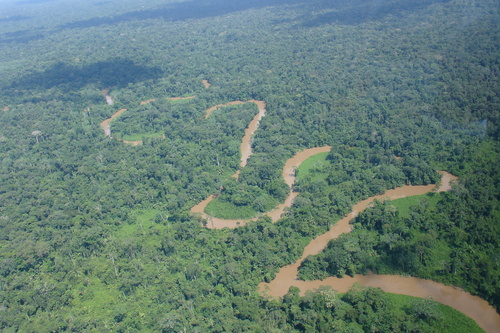

It had been hailed as an alternative to the ineffectual efforts of the United Nations to deal with climate change and biodiversity loss. The ITT Initiative, as the project was known, promised to the keep carbon in the ground in a 200,000- hectare corner of the park and, in the process, help to redistribute wealth from rich nations to the developing world and wildlife.
But a little more than a year after it was launched, this bold project is as much at risk as the wildlife. Ecuador’s President Correa told the Guardian the results have been disappointing.
“This was a revolutionary idea. With a logic that I would call perfect: it implied a substantial change in the management of natural resources in the fight against climate change. It meant a transfer of resources from the richest countries – which are the biggest polluters – to poorer countries,” he said. “But what has happened since has been the opposite: because the US, UK and others can consume the assets generated by the amazon jungle for free, they have committed absolutely nothing. The Yasuni ITT initiative has raised a lot less than expected.”
STORY: Thirty-Four Colombian Tribes Face Extinction From Mining and Development
httpvh://youtu.be/cr3oep32SzE
With enthusiasm for the project cooling, the Guardian has discovered evidence that the oil companies are moving closer. A road is being built in a neighbouring oil exploration block inside the Yasuni park. Huge ecological wealth is at risk. One Yasuni hectare – the area of two football pitches – is home to a wider variety of trees, birds, reptiles and amphibians than in the US and Canada combined.
Wildlife at Risk as Amazon Tribes Come Under Threat From Oil Exploration
In addition, two of the world’s last uncontacted tribes are under threat from this road building and drilling deep into the heart of the Amazon forest, according to conservationists, who say this may indirectly add to the pressure on wildlife.
The Tagaeri and the Taromenane – who have fought off illegal loggers and Catholic missionaries with spears and blowpipes to maintain their isolated, nomadic existence – are now at risk from the construction of roads and drilling wells as petroleum firms carve up the Yasuní national park.
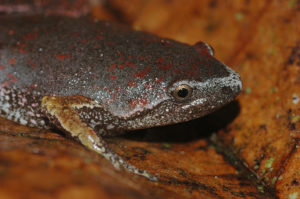

Scientists believe Yasuní is the most biodiverse place on Earth and large swaths of the park remain in pristine condition thanks partly to the ferocity of the indigenous people’s resistance to intruders. That is changing. Although the rights of these tribes are recognized by the country’s constitution, their existence has been largely ignored by government authorities responsible for drawing up the boundaries for development, say researchers who have studied their interaction with often-violent and lawless frontiers of globalization.
[Example of Academic Rationalization/Willing Misdirection:] “The question of conservation in Yasuní is not as simple as saying we are not going to drill…oil is not the problem [oil is a very big problem].” Prof. Hugo Navarrete, a Biologist at the Pontifica Universidad Católica del Ecuador, notes that there is no oil in the eastern side of the park “and almost everything is devastated.” The destruction of the forest there is caused by expansion for banana and oil palm plantations [multinationals], pasturelands [multinationals], road building [governmental development programs], settlements [government], and illegal hunting and logging [outside poachers enabled by roads and settlements]. The destruction is amplified as indigenous people become less isolated and acquire chain saws [not the real problem] and other modern technology that are incompatible with their ancient nomadic way of life. The new taste for [willing quarter-truth by professor rationalizing neoliberal development] modern commodities, clothes, shoes, and mechanized equipment, creates a new demand for money, setting up a vicious cycle of harvesting the forest to sell for currency. “If you want to preserve this pristine forest you definitely have to solve the poverty problem [or better yet, bar multinationals from deforesting, ranching and extracting, leading to road building and settlements].” — R. Douglas Fields, “Scientific American”
The Taromenane – known locally as the “red feet” – are thought to be offshoots of the Huaorani, who speak the same language but have suffered a very different fate. The Huaorani – which means “human being” – also used to be almost entirely carnivorous nomads and fearsome defenders of their rainforest home. They resisted contact until 1958, but now most are settled, often around oil well communities with whom they have a parasitic relationship.
Carlos Andrés Vera, the director of a documentary about the the uncontacted tribes, says the Huaorani take money from the petroleum companies in return for a promise not to attack. “They may do a show and dance naked, but it’s basically extortion. I don’t blame them. The Huaorani have learned about citizenship from Ecuador’s mafia: the army, oil firms and illegal loggers.”
[vimeo clip_id="35717321" width=600 height=338 ]
“Taromenani, the Extermination of the Hidden Peoples.” Documentary written and directed by Carlos Andrés Vera about the genocide of uncontacted peoples in the Yasuni National Park, Ecuador, in Spanish, 2007.
The Huaorani and uncontacted tribes have also lost much of their territory to other tribes that were quicker to embrace modernity and strikes land deals with the authorities. The Kichwa indigenous group have moved from spears and blowpipes to guns and eco-tourism within three generations. They say the other tribes chose isolation.
“We call them savages,” said Silvana Tangoy, a Kichwa guide who performs traditional dances for visiting tourists. “We tried to get in touch with them, but they responded with spears so we leave them now. That’s fine. They can do what they want in the park. They don’t want to be civilised.” The issues of the tribes is compounded by political sensitivities and the polarisation of opinion between those who call them violent savages and want to seize their land and those who feel they are vulnerable and can do no wrong.
The zoologist Rob Wiliams, who is one of the few people to have seen members of the uncontacted tribes, says franker discussions with and about indigenous people forced into transition are vital because once tribes have access to roads, guns and healthcare, their numbers grow rapidly and so does their impact on other species.
“With a bow and arrow, it was hard to kill an animal like the tapir, but now it’s easy. That’s why we are seeing overhunting and falling densities of wildlife,” said Williams, a representative of the Frankfurt Zoological Society. “The biggest conservation issue in the Amazon is the indigenous people in protected areas, but no one wants to talk about it [note: a final misdirection, though a real issue; the problem is NOT the indigenous people overhunting].”
Jonathan Watts: World’s conservation hopes rest on Ecuador’s revolutionary Yasuni model, Guardian UK

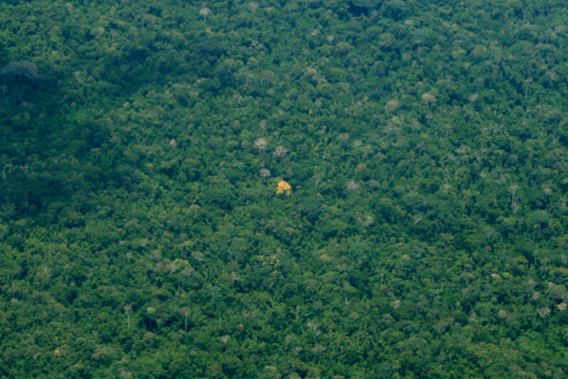


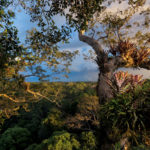
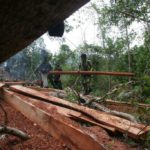
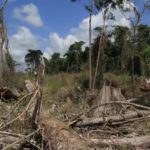
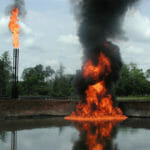
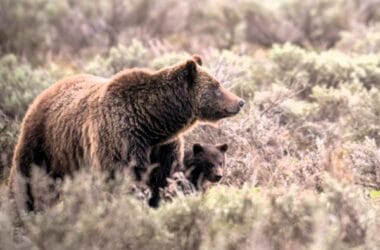
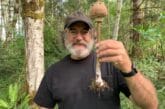




Pingback: 66 Colombian Tribes Face Extinction from Mining and Ranching | WilderUtopia.com
Pingback: Ecuadorean Amazon Under Oil Assault to Service Chinese Debt | WilderUtopia.com